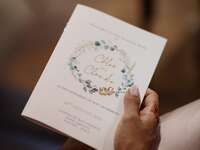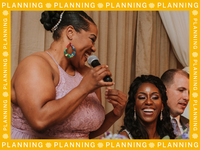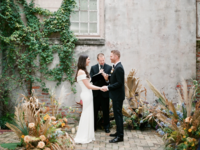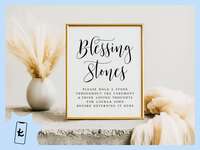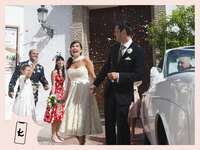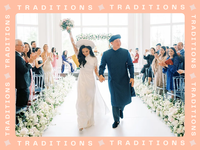A Comprehensive Guide to Traditional Episcopal Wedding Vows
Are you considering having a traditional Episcopal wedding and wondering what Episcopal wedding vows entail? You've come to the right place. In this guide, we lay out what you should include in traditional Episcopal wedding vows, what wedding vow template wording exists for you to use and if you can personalize these vows. But before we dive into your marriage vows, let's explore what it means, and looks like, to get married as an Episcopalian.
Members of the Episcopal Church believe in a loving, liberating and life-giving God and in the teachings of Jesus Christ. These beliefs will set the foundation for your traditional Episcopal wedding, a type of Christian wedding.
According to the Book of Common Prayer, "Christian marriage is a solemn and public covenant" made in the presence of God, two witnesses, your wedding party and guests. You or your partner must be baptized Christians in order to enter into wedlock in the Episcopal Church, and a priest or bishop is traditionally responsible for officiating on your wedding day. (Deacons may also be used, with the omission of the nuptial blessing, in areas where it is permitted by civil law.)
Before you and your spouse-to-be can be united in holy matrimony, you must sign a declaration of intention stating you believe this union in your heart, body and mind is intended by God for your mutual joy, for help and comfort in prosperity and adversity and "for the procreation (when it is God's will) of children and their Christian nurture."
On your big day, your wedding ceremony will begin with the celebration and blessing of your marriage. The celebrant, or officiant, will address the congregation; the wording stated in your declaration of intention will be spoken aloud at this time. Next is the declaration of consent, during which the celebrant addresses both partners and your wedding guests, followed by the ministry of the word and then the main event—the marriage. This part of the ceremony includes the exchange of vows. Afterward are the prayers, which may include the Lord's Prayer (also known as the Our Father), the peace and Holy Communion. If there is no communion, the service ends after the peace.
Now that we've covered the basics, read on for more information about traditional Episcopal wedding vows.
What to Include in Your Traditional Episcopal Wedding Vows
Episcopal wedding vows are very similar to other Protestant Christian wedding vows like those exchanged during Presbyterian or Baptist wedding ceremonies. At an Episcopal wedding, traditional wedding vows exchanged during a worship service uphold the lifelong covenant you make with your partner. After your declarations of consent but prior to making your vows, your officiant will ask for God's blessing, asking that God assist you with his grace as you honor and keep the vows you make with "true fidelity and steadfast love."
During your vows, you and your partner will face each other. One at a time, you will take the other's right hand (in marriages of the opposite sex, traditionally the man goes first) and say your vows. Afterward, the priest or bishop may bless your wedding rings and then you'll exchange rings as a symbol of your vows.

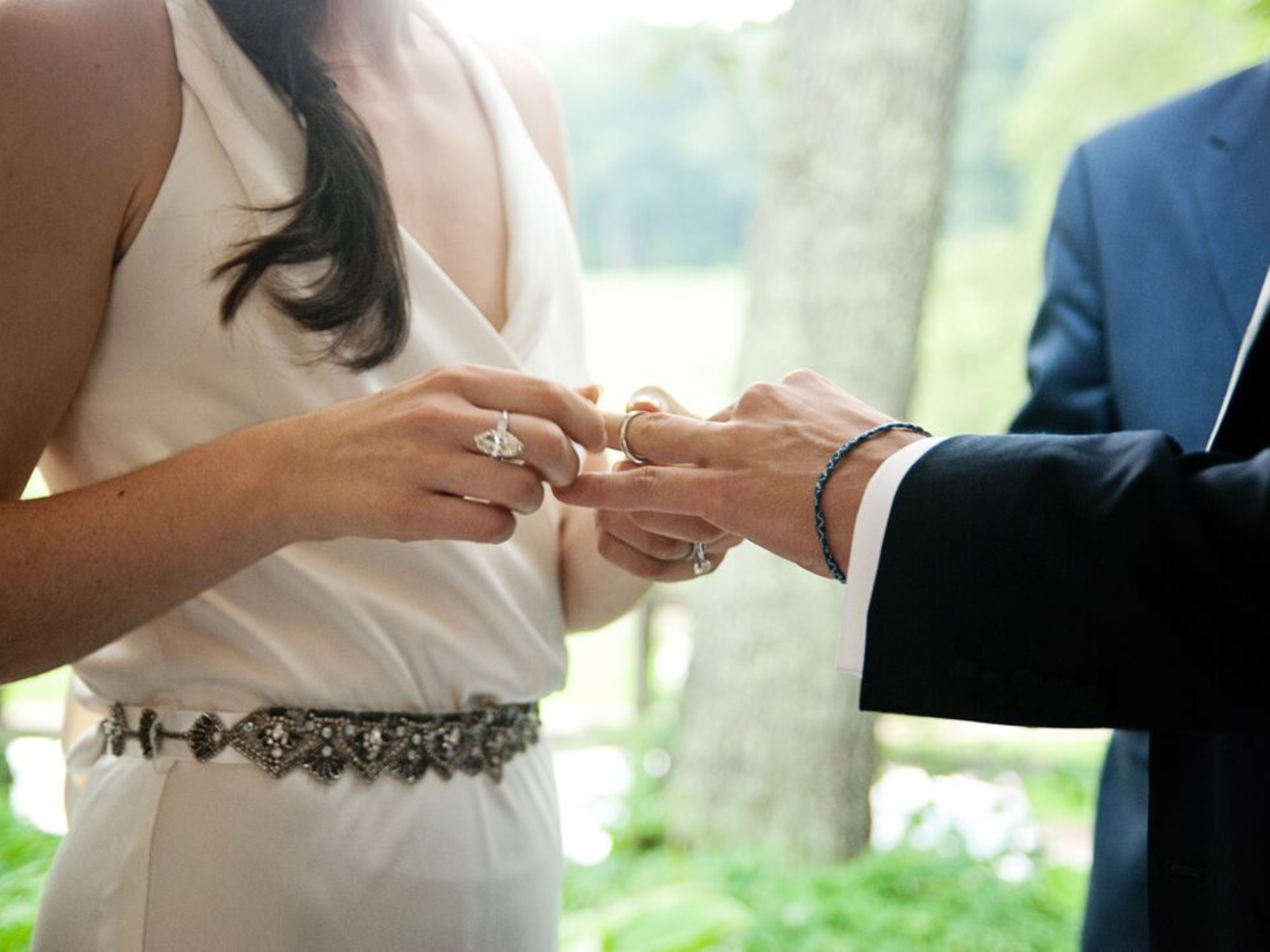

Traditional Episcopal Wedding Vows Template
The below traditional vow template comes from the Episcopal Church's Book of Common Prayer.
Traditional Vows
Partner 1, facing the other and taking their right hand, says:
In the Name of God, I, Name, take you, Name, to be my faithful wife/husband/spouse, to have and to hold from this day forward, for better for worse, for richer for poorer, in sickness and in health, to love and to cherish, until we are parted by death/until death parts us. This is my solemn vow.
Partner 2, still facing partner 1, takes their right hand and says:
In the Name of God, I, Name, take you, Name, to be my faithful husband/wife/spouse, to have and to hold from this day forward, for better for worse, for richer for poorer, in sickness and in health, to love and to cherish, until we are parted by death/until death parts us. This is my solemn vow.
The priest may then ask for God's blessing on the rings, speaking the following:
Bless, O Lord, this ring to be a sign of the vows by which this man and this woman/these persons have bound themselves to each other; through Jesus Christ our Lord. Amen.
Each partner places each ring on the ring finger of the other's hand and says:
Name, I give you this ring as a symbol of my vow, and with all that I am, and all that I have, I honor you, in the Name of the Father, and of the Son, and of the Holy Spirit (or in the Name of God).
Then the celebrant joins the right hands of the couple and pronounces them married.
Additional Vow Wording
The Book of Common Prayer also lists this Elizabethan vow template option, if you're looking for something slightly different for your own wedding:
I, Name, take thee, Name, to my wedded wife/husband/spouse, to have and to hold from this day forward, for better for worse, for richer for poorer, in sickness and in health, to love and to cherish, till death us do part, according to God's holy ordinance; and thereto I plight/give thee my troth.
For something more contemporary, utilize this option provided by Grace Episcopal Church:
In the name of God, I, Name, give myself to you, Name. I will support and care for you by the grace of God: enduring all things, bearing all things. I will hold and cherish you in the love of Christ: in times of plenty, in times of want. I will honor and love you with the Spirit's help: forsaking all others, as long as we both shall live. This is my solemn vow.
Personalizing Traditional Episcopal Wedding Vows
Because the Book of Common Prayer is the liturgy used for Episcopal marriage services, wedding vows usually mirror those mentioned above. It is important to note that, different from some other Christian denominations, the Episcopal Church welcomes the LGBTQ+ community and supports same-sex marriages.
For further guidance or requests for vow personalization, we recommend you consult with the priest, bishop or deacon overseeing your wedding.


